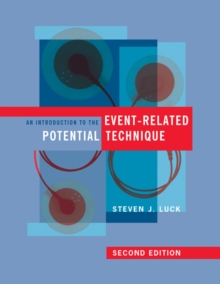
Scenario Visualization : An Evolutionary Account of Creative Problem Solving Hardback
by Robert Arp
Part of the A Bradford Book series
Hardback
Description
An account of how humans evolved a conscious, vision-related ability unique to their species in order to solve nonroutine problems. In order to solve problems, humans are able to synthesize apparently unrelated concepts, take advantage of serendipitous opportunities, hypothesize, invent, and engage in other similarly abstract and creative activities, primarily through the use of their visual systems.
In Scenario Visualization, Robert Arp offers an evolutionary account of the unique human ability to solve nonroutine vision-related problems.
He argues that by the close of the Pleistocene epoch, humans evolved a conscious creative problem-solving capacity, which he terms scenario visualization, that enabled them to outlive other hominid species and populate the planet.
Arp shows that the evidence for scenario visualization-by which images are selected, integrated, and then transformed and projected into visual scenarios-can be found in the kinds of complex tools our hominid ancestors invented in order to survive in the ever-changing environments of the Pleistocene world.
Arp also argues that this conscious capacity shares an analogous affinity with neurobiological processes of selectivity and integration in the visual system, and that similar processes can be found in the activities of organisms in general.
The evolution of these processes, he writes, helps account for the modern-day conscious ability of humans to use visual information to solve nonroutine problems creatively in their environments.
Arp's account of scenario visualization and its emergence in evolutionary history suggests an answer to two basic questions asked by philosophers and biologists concerning human nature: why we are unique; and how we got that way. Robert Arp is Postdoctoral Research Fellow at the National Center for Biomedical Ontology.
His areas of specialization include philosophy of biology and philosophy of mind.
He is the author of numerous articles and the forthcoming An Integrated Approach to the Philosophy of Mind.
Information
-
Item not Available
- Format:Hardback
- Pages:224 pages, 2 halftones, 8 line drawings, 1 table; 3 Illustrations, unspecified
- Publisher:MIT Press Ltd
- Publication Date:29/02/2008
- Category:
- ISBN:9780262012447
Other Formats
- PDF from £31.50
Information
-
Item not Available
- Format:Hardback
- Pages:224 pages, 2 halftones, 8 line drawings, 1 table; 3 Illustrations, unspecified
- Publisher:MIT Press Ltd
- Publication Date:29/02/2008
- Category:
- ISBN:9780262012447










